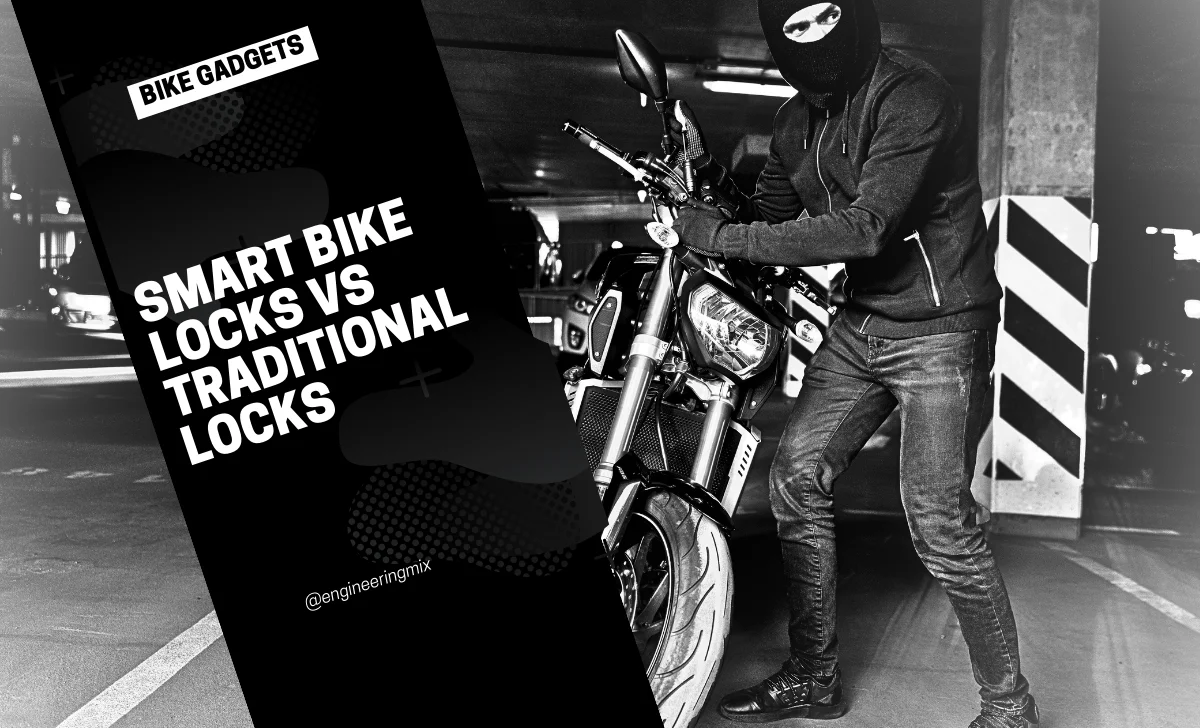
Smart Bike Locks vs Traditional Locks: Which is Better for Your Bike?
In today’s fastest world, bikes have become a popular choice for commuting and leisure riding. However, with the increasing rate of bike theft, it has become essential for riders to invest in robust security measures to protect their prized possessions. The market offers a range of options, including traditional locks and the emerging technology of smart bike locks. This article aims to delve into the comparison between smart bike locks and traditional locks, exploring their features, advantages, and disadvantages to determine which option is better for bike owners.
In this article
Traditional Locks:
Traditional locks have long been the go-to security solution for bikes. They typically consist of a metal chain or cable secured with a padlock. Traditional locks are durable, reliable, and relatively affordable. They provide a visible deterrent, making it less appealing for potential thieves to target a bike. Additionally, their simplicity allows for easy installation and use. However, traditional locks do have some limitations. They rely solely on physical strength, making them vulnerable to lock picking, bolt cutters, and other manual tampering techniques used by experienced thieves.
Smart Bike Locks:
Smart bike locks have gained popularity in recent years, incorporating advanced technology to enhance bike security. These locks are equipped with electronic components such as Bluetooth, GPS, and accelerometers, providing additional layers of protection. One of the key features of smart locks is their ability to connect with smartphones through dedicated applications. This enables riders to remotely lock and unlock their bikes, receive real-time notifications in case of suspicious activity, and track the location of their bike in the event of theft.
Also, Read:
Top Best Bikes Under 1.5 Lakh in India
Advantages of Smart Bike Locks:
1. Enhanced Security: Smart locks provide a higher level of security compared to traditional locks. They often feature advanced anti-theft mechanisms such as motion sensors and alarms that can deter potential thieves or attract attention if tampered with.
2. GPS Tracking: Many smart locks come equipped with GPS technology, allowing owners to track their bikes’ real-time location. This feature proves invaluable in the unfortunate event of a theft, assisting law enforcement in recovery efforts.
3. Remote Access and Control: Smart locks offer the convenience of remote access and control through smartphone apps. Riders can lock or unlock their bikes without physically interacting with the lock, making it easier to secure their bikes quickly.
4. Advanced Notifications: Smart locks can send real-time notifications to owners’ smartphones, alerting them of any suspicious activity, unauthorized access attempts, or even a low battery level.
Disadvantages of Smart Bikes Locks:
1. Cost: Smart locks are generally more expensive than traditional locks due to their advanced technology and additional features. The initial investment can be a deterrent for some bike owners.
2. Reliance on Technology: Smart locks rely on electronic components, which means they are vulnerable to potential malfunctions, software bugs, or battery failures. In some cases, technical issues can hinder the lock’s functionality, leaving the bike vulnerable or causing inconvenience for the owner.
3. Cybersecurity Concerns: With the integration of smartphone apps and connectivity, there is a risk of potential cyber-attacks or hacking attempts. It is crucial for manufacturers to prioritize robust security measures to protect users’ data and ensure the locks’ integrity.
Additional Considerations:
While the comparison between smart bike locks and traditional locks is essential, there are a few additional factors worth considering before making a final decision:
1. Ease of Use: Traditional locks are straightforward to operate, requiring minimal setup and maintenance. They do not rely on smartphone apps or complex technological interfaces. Smart locks, on the other hand, require a bit more setup and familiarity with the accompanying smartphone application. Riders should consider their comfort level with technology and their willingness to invest time in learning and setting up the smart lock system.
2. Integration with Existing Security Systems: Some bikes may already have built-in security features, such as immobilizers or alarm systems. It is important to determine if a smart lock can integrate with these existing security systems to provide comprehensive protection. Compatibility between different security technologies is crucial to ensure seamless functionality and maximize the overall security of the bike.
3. Insurance Considerations: Bike insurance policies often have specific requirements for theft prevention measures. Before making a decision, riders should consult their insurance provider to understand if there are any specific recommendations or requirements regarding locks or security systems. Some insurance companies may offer discounts or incentives for using certain types of locks or smart security systems.
4. Maintenance and Durability: Traditional locks are known for their durability and resistance to physical attacks. They require minimal maintenance apart from occasional lubrication and visual inspections for signs of wear and tear. On the other hand, smart locks rely on electronic components that may require periodic updates or battery replacements. It is essential to consider the long-term maintenance and durability of both options to ensure reliable and consistent protection.
5. Brand Reputation and Reviews: When considering a smart lock, it is advisable to research and evaluate different brands based on their reputation, customer reviews, and product ratings. Paying attention to customer feedback can provide insights into the reliability, functionality, and overall user experience of a particular smart lock model. This research can help riders make an informed decision and choose a reputable brand known for producing reliable and secure smart bike locks.
Conclusion:
The choice between smart bike locks and traditional locks ultimately depends on individual preferences, budget, and the desired level of security. Traditional locks offer simplicity, durability, and affordability but may lack the advanced features and convenience provided by smart locks. Smart locks provide enhanced security, remote access, GPS tracking, and real-time notifications, but they come at a higher cost and are subject to potential technical issues.
Riders should carefully evaluate their specific needs, and consider factors such as ease of use, integration with existing security systems, insurance requirements, maintenance, and brand reputation. It is important to prioritize the security of the bike and choose a lock that aligns with individual circumstances and provides peace of mind. Whichever option riders choose, investing in a reliable lock is a crucial step towards protecting their beloved bikes from theft and ensuring a safe riding experience.




